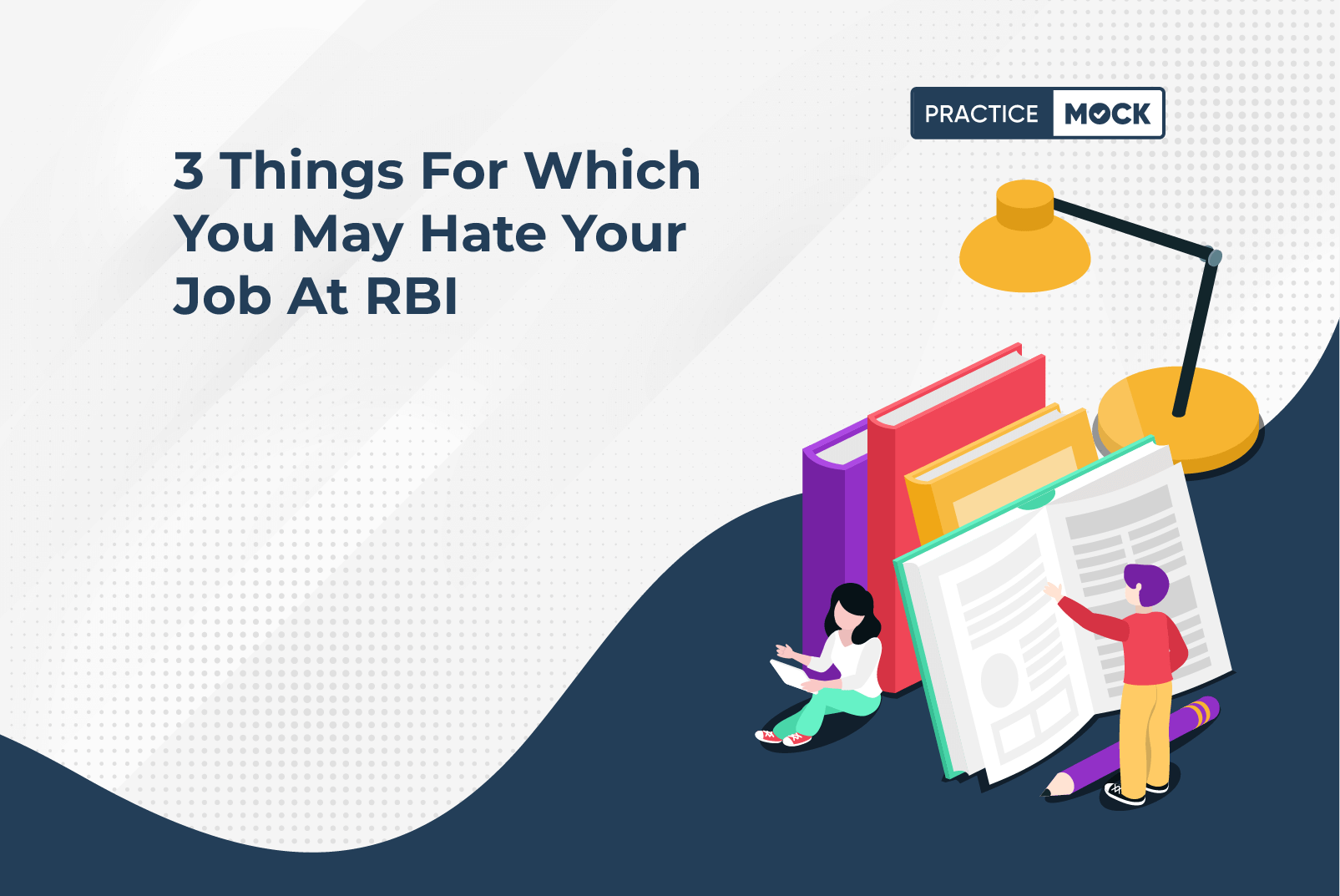3 Things for Which You May Hate Your Job at RBI: Working for the Reserve Bank of India (RBI) can be a prestigious and rewarding career choice for many individuals. RBI plays a critical role in shaping India’s economic and financial landscape. However, like any job, there are aspects that might make you dislike your job at RBI. In this blog post, we will explore three things for which you may hate your job at RBI.
Signup for a FREE Mock Test to Know Your ALL India RANK
Excessive Workload and Pressure
One of the primary reasons some employees may find it challenging to enjoy their jobs at RBI is the substantial workload and pressure that comes with it. The central bank is responsible for regulating and supervising financial institutions, managing the country’s monetary policy, and safeguarding the nation’s currency. This responsibility often means that RBI employees are expected to work long hours and be on call to address financial crises or emergencies.
The constant pressure to make critical decisions and analyze complex financial data can be mentally and emotionally draining. Moreover, the stringent deadlines and high expectations can lead to a poor work-life balance, which can be a significant source of frustration for employees.
Bureaucratic Red Tape
Like many government organizations, RBI can be a bureaucratic institution. Complex administrative processes and a hierarchical structure can hinder employees’ ability to innovate and make decisions independently. This bureaucracy can lead to inefficiency and slow decision-making, causing frustration among those who want to see real change or improvements in their work.
The extensive paperwork, approvals, and multiple levels of hierarchy can make it challenging to bring about swift changes or adapt to new market trends and developments. This rigid structure may deter employees who are passionate about making a difference and driving innovation in their roles.
Limited Career Mobility
While RBI offers stable and respected employment, it may not provide the same level of career mobility as private-sector jobs. The organization’s conservative approach to promotions and transfers can be a source of dissatisfaction for some employees.
Promotions are often based on seniority and may not reflect an employee’s actual skills and contributions. This can be discouraging for those who seek rapid advancement and recognition for their hard work and talent. Furthermore, the limited number of job openings and opportunities for lateral movement can lead to a feeling of being stuck in one’s career.
Signup for a FREE Mock Test to Know Your ALL India RANK
Conclusion
Working at RBI has its pros and cons, just like any other job. While the institution is known for its stability, prestige, and opportunities to make a meaningful impact on the Indian economy, there are certain aspects that might make you dislike your job. Excessive workload and pressure, bureaucratic red tape, and limited career mobility are just a few of the potential drawbacks.
It’s important to remember that job satisfaction is subjective, and what may be a challenge for one person could be a source of motivation for another. If you are considering a career at RBI, it’s crucial to weigh these potential downsides against the positive aspects to determine if it’s the right fit for you. Ultimately, each individual’s experience at RBI will be unique, shaped by their role, team, and personal career aspirations.
- Sign Up on Practicemock for Updated Current Affairs, Free Topic Tests and Free Mini Mocks
- Sign Up Here to Download Free Study Material
Free Mock Tests for the Upcoming Exams
- IBPS PO Free Mock Test
- RBI Grade B Free Mock Test
- IBPS SO Free Mock Test
- NABARD Grade A Free Mock Test
- SSC CGL Free Mock Test
- IBPS Clerk Free Mock Test
- IBPS RRB PO Free Mock Test
- IBPS RRB Clerk Free Mock Test
- RRB NTPC Free Mock Test
- SSC MTS Free Mock Test
- SSC Strenographer Free Mock Test
- GATE Mechanical Free Mock Test
- GATE Civil Free Mock Test
- RRB ALP Free Mock Test
- SSC CPO Free Mock Test
- AFCAT Free Mock Test
- SEBI Grade A Free Mock Test
- IFSCA Grade A Free Mock Test
- RRB JE Free Mock Test
- Free Banking Live Test
- Free SSC Live Test



